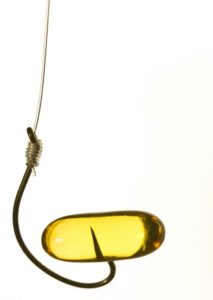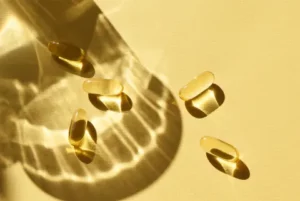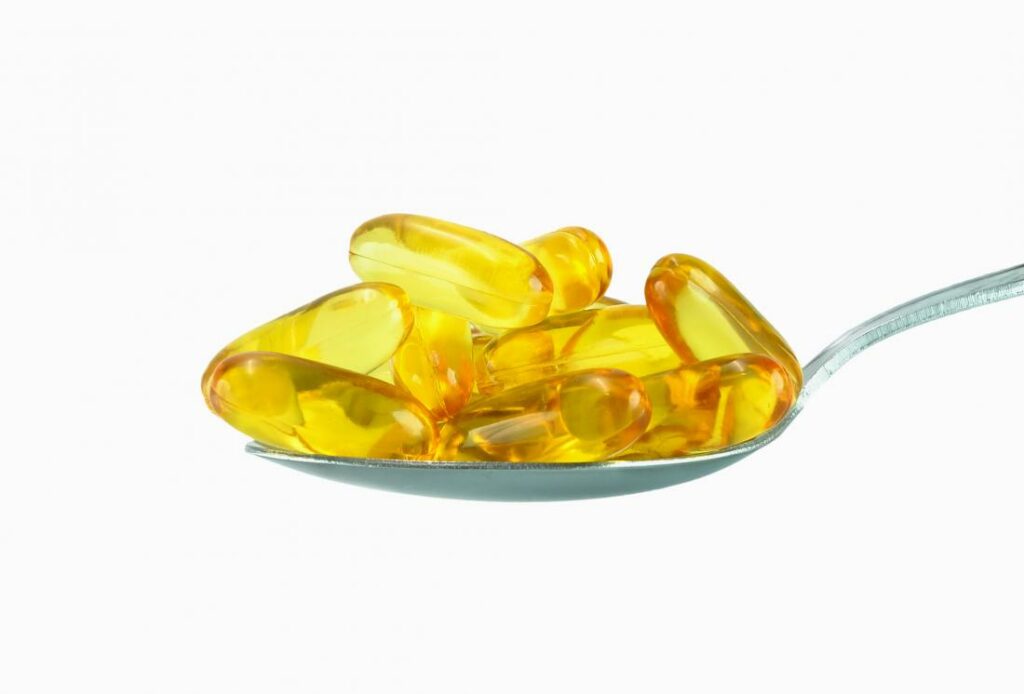Depression is a serious mental illness that can have devastating effects on people’s lives. It is estimated that depression affects more than 300 million people worldwide. While there are many different treatments for depression, including medication and therapy, some people are turning to omega-3 supplements to help relieve their symptoms. In this blog post, we will explore the link between omega-3 and depression and discuss whether or not taking omega-3 supplements is a good treatment option for people with depression.
Contents
Defining Depression
Depression is a mental illness that is characterized by persistent feelings of sadness and despair. People with depression may also have low self-esteem, difficulty concentrating, fatigue, and changes in sleep and appetite. Depression can make it difficult for people to function in their daily lives and can even lead to thoughts of suicide. While there are many different causes of depression, it is believed that a combination of genetic, biological, psychological, and social factors contribute to the development of the disorder.
It is important to note that depression is not the same thing as sadness. Everyone feels sad from time to time, but sadness is a normal emotion that usually passes within a few days. Depression, on the other hand, is a more serious condition that can last for weeks, months, or even years. If you are experiencing symptoms of depression, it is important to seek professional help.
The Link Between Omega-3 and Depression

Omega-3s are a type of fatty acid that is found in fish, nuts, and seeds. Omega-three fatty acids are important for maintaining heart health and preventing chronic diseases. They have also been shown to be effective in treating a variety of mental health conditions, including depression.
- A large body of research has examined the link between omega-s and depression. One meta-analysis of 11 studies found that people who took omega-three supplements had a significantly lower risk of developing depression than those who did not take the supplements.
- The mechanisms of omega-3 acids in depression are not fully understood, but it is thought that they work by reducing inflammation and improving brain function. This further contributes to the mounting evidence that inflammation is a key factor in the development of depression.
- Another study looked at the effect of omega-three supplements on people who were already taking antidepressants. The study found that taking omega-three supplements along with antidepressants was more effective in treating depression than taking antidepressants alone.
- Moreover, a study in Biological Psychiatry found that EPA was able to improve symptoms of depression without causing any adverse side effects. This is significant because many antidepressant medications come with a long list of potential side effects, including weight gain, sexual dysfunction, and fatigue.
All of these findings suggest that omega-three supplements may be an effective treatment option for people with depression. There is still a scope for more research in this area, but the current evidence is promising.
Omega-3 Supplements as a Treatment for Depression
If you are considering taking omega-three supplements to treat your depression, it is important to talk to your doctor first. Omega-three supplements can interact with certain medications and may not be suitable for people with allergies or medical conditions. Additionally, it is important to choose a high-quality supplement that has been third-party tested for safety and purity.
The recommended dosage of omega-three supplements varies depending on the person’s age, weight, and health condition. It is important to follow the dosage instructions on the supplement label or as directed by your doctor.
Taking omega-three supplements may be an effective treatment option for people with depression. However, more research is needed to confirm the findings and determine how omega-three supplements work to relieve symptoms of depression.
Depression is a serious mental illness that can have devastating effects on people’s lives. While there are many different treatments for depression, some people are turning to omega-three supplements to help relieve their symptoms.
Sources Of Omega-3

Omega-3s are a type of essential fatty acid that is found in certain plant and animal foods. Our bodies cannot produce omega-3s on their own, so we must get them through our diet. Some of the most common foods which are rich in this nutrient include:
- Fatty fish like salmon, herring, sardines, and mackerel
- Flaxseeds
- Chia seeds
- Walnuts
- Soybeans
- Algae
- Fish oil
- Grass-fed beef
- Hemp seeds
If you don’t eat enough foods that contain omega-3s, you may want to consider taking a supplement. Supplements are available in capsule form or as liquids. The liquid forms are more easily absorbed by the body. It is also available in a vegan form for those who do not eat fish or other animal products.
Things To Consider
If you decide to take omega-3 supplements for depression, there are some things you might want to keep in mind.

- First, it’s important to choose a high-quality supplement. Look for one that has been purified to remove mercury and other contaminants. Also, make sure the supplement you choose has been tested for purity by an independent laboratory.
- There is a possibility of allergic reactions or other side effects when taking these supplements. Be sure to speak with a healthcare professional before starting any supplement regimen.
- While Omega-3s are considered safe for most people, there are some side effects to be aware of. These include:
-Nausea
-Diarrhea
-Stomach cramps
-Fishy breath
-Bad taste in the mouth
-Headache
-Dizziness
-Rash
If you experience any of these side effects, stop taking the supplement and consult your doctor.
- It is also important to keep in mind that if you are taking some other medication such as blood thinners, you should speak with your doctor before taking an omega-3 supplement. These supplements can interact with some medications and may not be suitable for everyone. Be sure to speak with your doctor or pharmacist before starting any new supplement.
- Lastly, if you have any conditions such as diabetes, high blood pressure, or heart disease, you should speak with your doctor before taking an omega-36 supplement. These supplements can interact with some medical conditions and may not be suitable for everyone.
Just like with any other treatment, it is important to keep in touch with your doctor when taking omega-three supplements for depression.
Other Supplements For Depression
In addition to omega-3, there are also other supplements that have been studied for their potential to help relieve symptoms of depression. Some of these include:
- Vitamin D
- Vitamin B-12
- Folic acid
- Folate
- Creatine
- Rhodiola
- SAMe
- Saffron
If you are considering taking any of these supplements, be sure to speak with your doctor first. Depression is a serious mental illness and should be treated by a healthcare professional. Do not attempt to self-treat depression with supplements or any other type of treatment without speaking with your doctor first.
Conclusion
In conclusion, omega-3 is a type of essential fatty acid that has been shown to help relieve symptoms of depression. If you are considering taking omega-three supplements for depression, be sure to speak with your doctor first. Other potential supplements for depression include vitamin D, vitamin B-12, folic acid, and creatine. Depression is a serious mental illness and should be treated by a healthcare professional. Do not attempt to self-treat depression with supplements or any other type of treatment without speaking with your doctor first.
If you are looking for a reliable source for professional help for depression, contact Mantra Care. We have a team of expert psychologists who can help you manage your depression. Visit our website to book a session or download our free Android or iOS app for more information! We provide effective online depression counseling.


